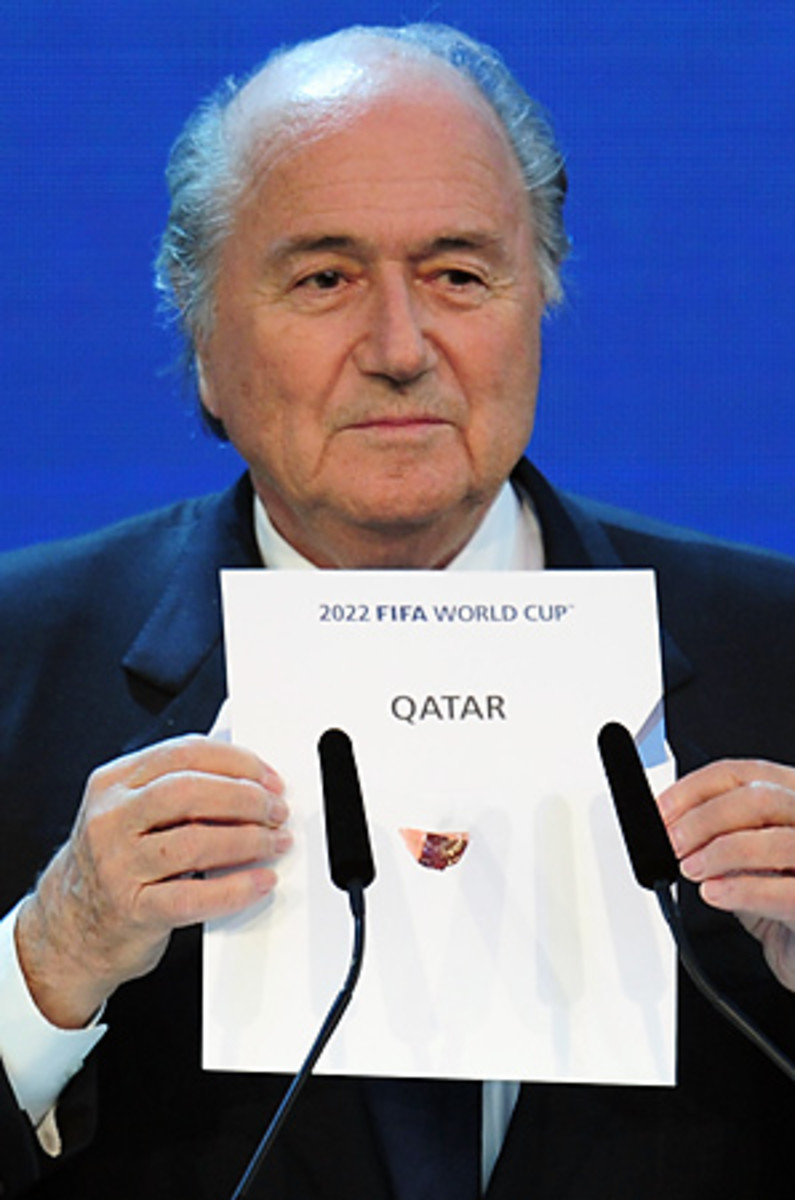Choice of Russia and Qatar as hosts raises questions of FIFA integrity
1. Choosing Qatar and Russia is the biggest indictment possible that FIFA is not a clean organization. The message here is that petrodollars talk. For an outfit that likes to thump its chest and claim that it is not corrupt (Trust us, says FIFA president Sepp Blatter), having two oil-wealthy winners is the clearest message possible that FIFA needs a complete overhaul in its leadership and organization. Russia had a pretty good case for being chosen, but Qatar (which was funded heavily by its government and bought the support of celebrity endorsers) didn't make a lot of sense in the first place. Get ready for searing summer heat in the Middle East!
2. Qatar? Really? It would have been one thing if the U.S. had lost out to Australia, a country that has put on big-time sporting events with panache and has never hosted a World Cup. But Qatar is a huge risk for FIFA and suggests that it's possible to buy the World Cup. FIFA's own inspection team visited Qatar and was concerned that the 110-degree summer heat would put the health of players and fans at risk, even if Qatar says it will build air-conditioned stadiums and training grounds. What's more, 12 years is a long time away, and you never know what might happen in world politics between now and then. Choosing a safer bet like the U.S. or Australia would have been the logical thing to do, but as we know, FIFA doesn't always use logic in its decisions. If anything, the outcry over these choices will be the biggest incentive for FIFA to finally clean up its act.
3. The U.S. lost out, but its hard to imagine the Americans could have done more.Yes, the U.S. bid presentation on Wednesday wasn't perfect -- Bill Clinton and Morgan Freeman didn't live up to their potential, surprisingly -- but the U.S. bid committee crisscrossed the world to lobby voters for the past 18 months, and it had the best economic case of any of the 22 bidders for winning the bid. Is it possible to win the World Cup bid while playing by the rules? That question is louder than ever at this point. This is a big blow for U.S. soccer and Major League Soccer, but let's keep things in perspective too. This won't get as much mainstream attention in the U.S. as Chicago's failed Olympic bid. It won't doom MLS, which is here to stay. But like the U.S.' loss to Ghana in this year's World Cup, it is a huge missed opportunity.





